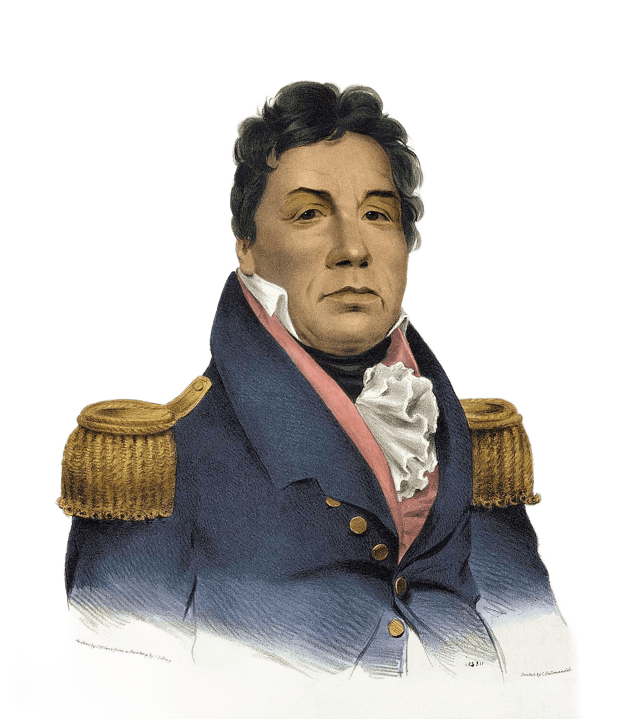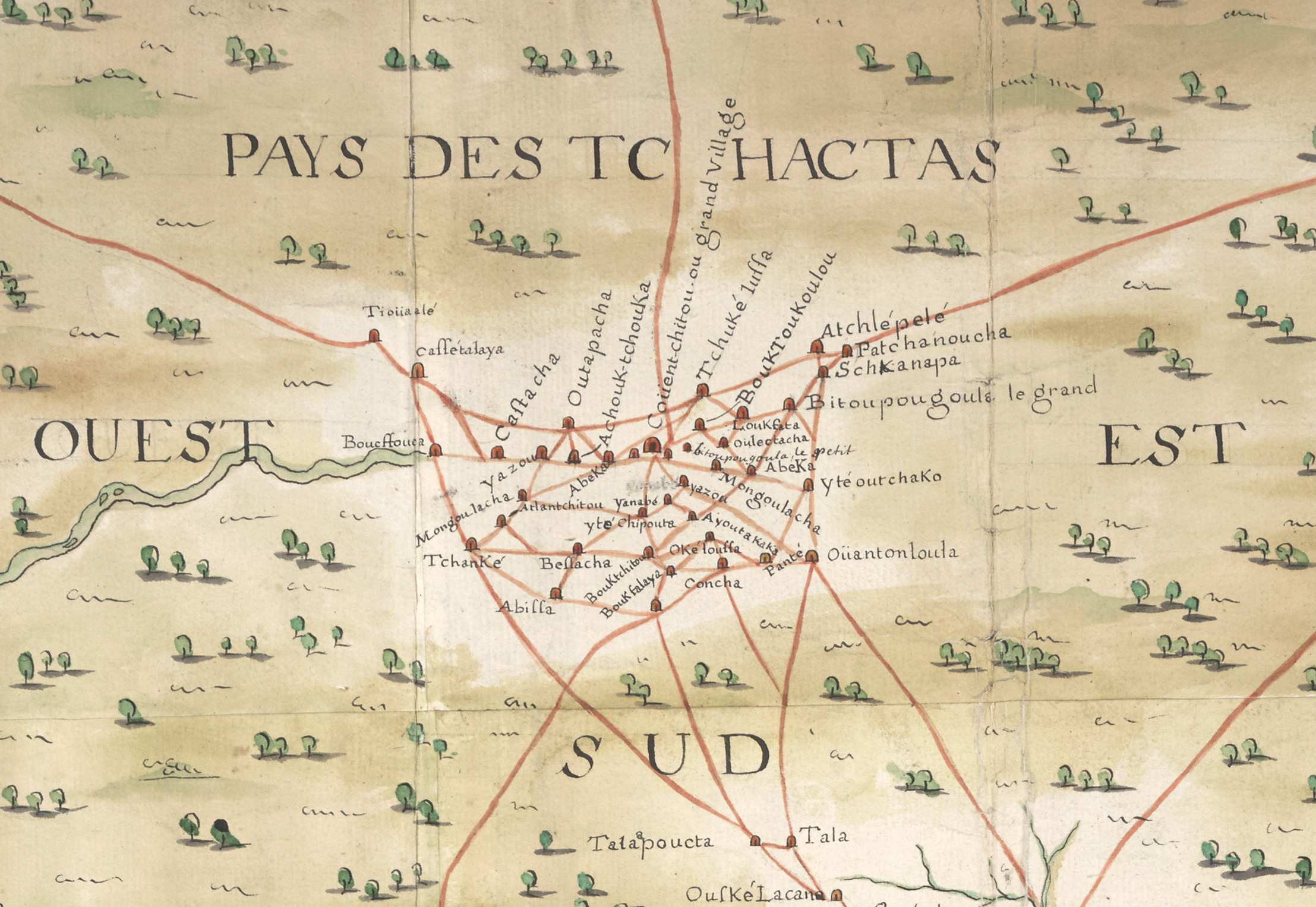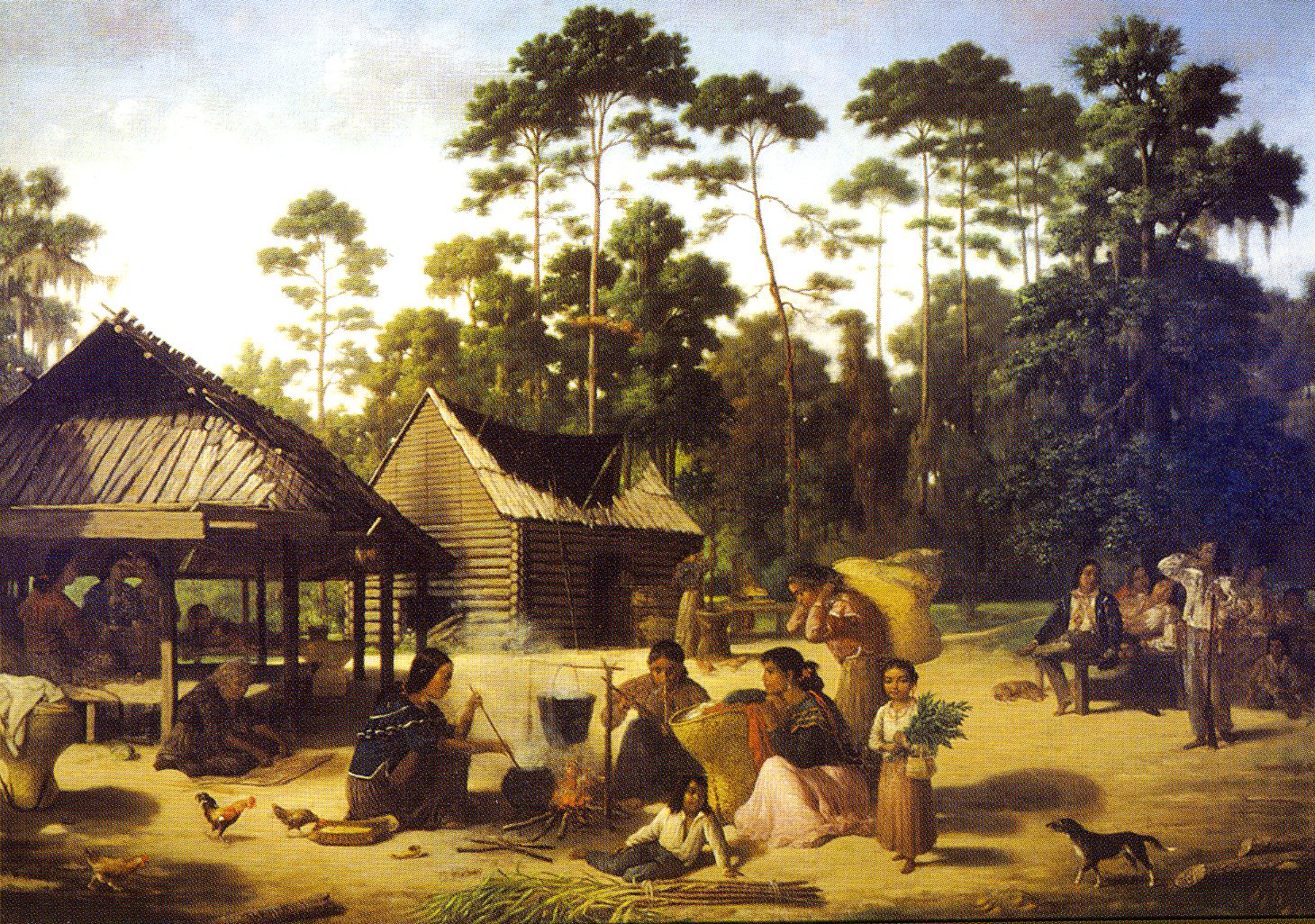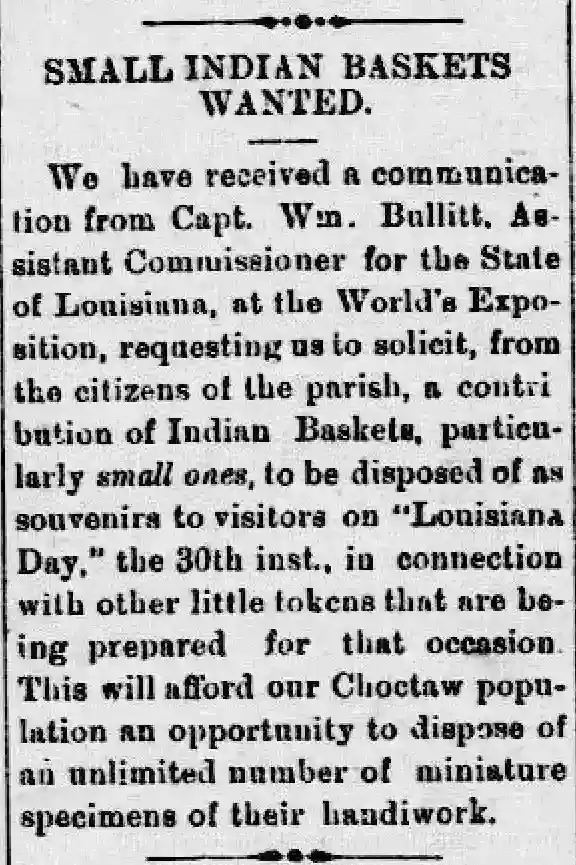In very ancient times, before man lived on the earth, the hill was formed, and from the topmost point a passage led down deep into the bosom of the earth. Later, when birds and animals lived, and the surface of the earth was covered with trees and plants of many sorts, and lakes and rivers had been formed, the Choctaw came forth through the passageway of in Nané chaha. And from that point they scattered in all directions but ever afterwards remembered the hill from the summit of which they first beheld the light of the sun.
— from Myths of the Louisiana Choctaw, opens a new window, compiled by David Bushnell Jr.
Everywhere you travel in southeast Louisiana, you might encounter names like Atchafalaya, Bogue Falaya, Ponchatoula, and Tchoupitoulas. These melodic sounding names, which sound strange to travelers and whose meanings are obscure even to locals, come from Choctaw. The Choctaw are one of the country’s largest American Indian tribes and although they were originally centered in Mississippi, they helped shape the development of Louisiana and their language is engraved in the very landscape.
The original core of Choctaw country was at the headwaters of Pearl River in central Mississippi, east of present-day Jackson. A few miles north of the town of Bogue Chitto (Choctaw for big river) lies an ancient mound called Nanih Waiya (Nané chaha in Bushnell’s account above). This mound figures into the Choctaw’s origin myths, either as the place where the Choctaw first came onto the earth or as the ultimate stop in a long-ago migration from the west. Fanning out southwards from Nanih Waiya were over forty Choctaw villages, organized into three divisions: western, eastern, and the southern “Six Towns”. The Choctaw paid great care to their corner of the world, tending the lands around their villages to produce an abundant harvest — they were a “nation of farmers” according to one European cartographer, opens a new window — and assiduously managing their woodland, keeping it open and free of underbrush. Historian Horatio Cushman, opens a new window, born in Choctaw territory in 1820, described their country:
Wherever they went, distant or otherwise, many or few, they always traveled in a straight line... They needed no broad roads, nor had they any... Paths alone, plain and straight, then led the Choctaws... from village to neighborhood, and from neighborhood to village, though many miles apart, and so open and free of logs, bushes, and all fallen timber, was their country then, rendered thus by their annual burning off of the woods, it was an easy matter to travel in any direction and any distance, except through the vast cane-brakes that covered all the bottom lands, which along could be passed by paths.
— from History of the Choctaw, Chickasaw, and Natchez Indians, opens a new window
The Choctaw expanded outside their original core and established many communities in Louisiana. According to Adrien Rouquette, opens a new window, the early Acolapissa tribe that was found here was in fact a southern branch of that nation. Father Rouquette, opens a new window ministered among Choctaw in Saint Tammany Parish during the 1800s. They traveled across the lake to trade in New Orleans, where Choctaw baskets and sassafras were always in demand. Some of the descendants of the St. Tammany Choctaw still live in and around Lacombe. Other settlements included that of the Jena Band of Choctaw Indians, opens a new window, who had settled around Catahoula Lake at the time of Indian Removal, opens a new window. Today, this community is the only federally recognized Choctaw tribe in Louisiana.
Local names of Choctaw origin include:
- Abita, reportedly a word for fountain or spring, perhaps from ahpi (spring) + ta (place)
- Bogue Chitto (also spelled Bok Chito), big river (in Choctaw, like Spanish, the adjective is placed after the noun, so bogue/bok means river and chitto/chito means big)
- Bogue Falaya, long river
- Castine Bayou, from kashti, meaning flea, so named for the abundance of fleas in the locality
- Chinchuba, from hachunchuba, meaning alligator
- Tangipahoa, from tanchapi, meaning corncob
- Tchefuncte, from hachofakti, meaning chinquapin
Other Choctaw names and words have entered the English lexicon. For instance, the word bayou is derived from bayuk, an older Choctaw word meaning river (compare it to bogue/bok above). The word “okay” might be derived from Choctaw okeh, meaning “it is so”, but this is debated, opens a new window.
Saint Tammany Parish Library has several books on the Choctaw and their culture and history:
Choctaws and Missionaries in Mississippi, 1818-1918
History of the Choctaw, Chickasaw, and Natchez Indians







Add a comment to: The Choctaw